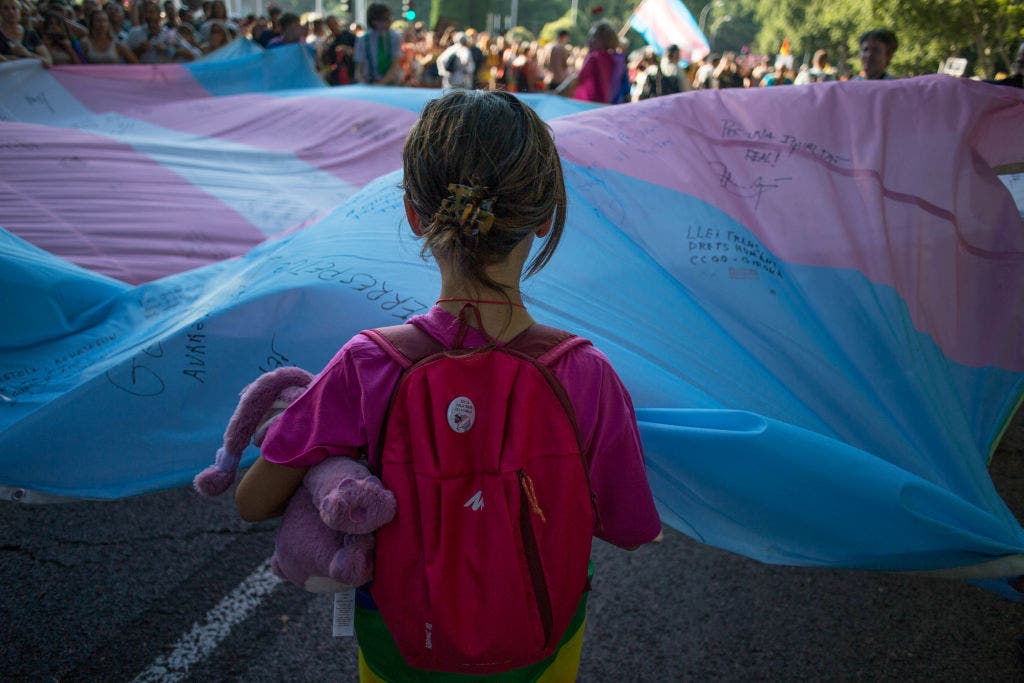The Riverside Unified School District (RUSD) in California found itself embroiled in controversy over the participation of a transgender athlete on the Martin Luther King High School girls’ cross-country team. This controversy escalated when students protesting the athlete’s inclusion were reprimanded, leading to a contentious board meeting and a lawsuit alleging that school administrators equated student protests with symbols of hate.
The heart of the issue lies in the participation of a transgender female athlete on the girls’ cross-country team. This participation ignited protests from some students and parents who argued that it infringed upon the rights and opportunities of cisgender female athletes. The students, led by Taylor, a female runner who allegedly lost her varsity spot to the transgender athlete, began wearing “Save Girls’ Sports” T-shirts in protest. This peaceful demonstration, however, was met with disciplinary action from the school, further inflaming the situation and prompting legal action.
The school’s response to the student protests added fuel to the fire. The administration implemented a dress code that targeted the “Save Girls’ Sports” T-shirts, leading to numerous students being disciplined with detention. The lawsuit filed on behalf of Taylor alleges that school administrators compared the T-shirts to swastikas, drawing a parallel between the students’ message of preserving fairness in girls’ sports and the symbol of Nazi Germany and the Holocaust. This comparison sparked outrage among parents and supporters who viewed it as an egregious attempt to silence dissent and demonize those advocating for female athletes.
The board meeting held to address the escalating controversy became a focal point for both sides of the issue. Supporters of transgender inclusion and those advocating for the preservation of girls’ sports rallied outside the district office, demonstrating the deep divisions within the community. While supporters of transgender rights held the majority inside the meeting, those advocating for “Save Girls’ Sports” made their presence known outside. The meeting itself was characterized by a highly charged atmosphere, reflecting the intense emotions surrounding this sensitive topic.
At the heart of the legal challenge is the assertion that Taylor, the displaced varsity runner, suffered tangible harm due to the inclusion of the transgender athlete. Her father, Ryan Starks, expressed his frustration and heartache at witnessing his daughter’s athletic aspirations being impacted by the situation. He emphasized the perceived unfairness of the situation and the emotional toll it had taken on his daughter. The lawsuit seeks to address what the plaintiffs perceive as a violation of Taylor’s rights and opportunities.
The legal team representing Taylor argues that the school’s actions not only infringed upon her athletic pursuits but also created a hostile environment for students expressing their views. Attorney Julianne Fleischer condemned the comparison of the “Save Girls’ Sports” message to a swastika, characterizing it as “incredibly dangerous” rhetoric. She highlighted the stark contrast between the message of promoting equality and fairness in sports and the symbol of genocide, emphasizing the chilling effect such comparisons can have on free speech and open dialogue. The lawsuit seeks to hold the school accountable for what it alleges are discriminatory practices and the suppression of student voices. The case has broader implications for how schools navigate the complex intersection of transgender rights and the rights of cisgender female athletes, highlighting the ongoing debate surrounding fairness and inclusion in competitive sports. The RUSD contends it is complying with California law that protects transgender athletes’ participation in sports consistent with their gender identity. However, the plaintiffs argue that this law infringes upon the rights of female athletes and creates an uneven playing field. This legal battle underscores the ongoing tension between accommodating transgender athletes and ensuring fair competition for all students. The outcome of this case could significantly impact how schools across California and potentially nationwide address this increasingly complex issue.

